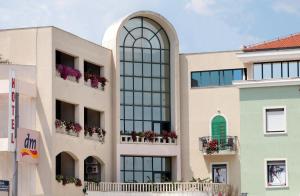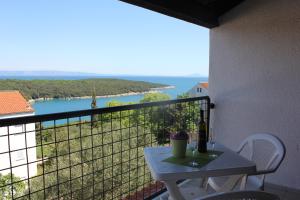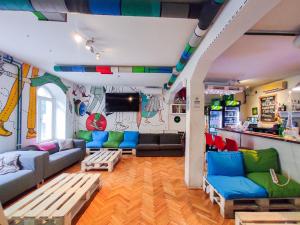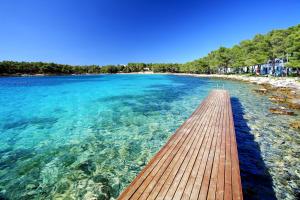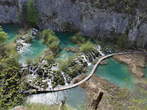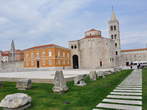Trogir is a picturesque Dalmatian town on the Adriatic coast, located west of Split. It is renowned for its exceptionally well-preserved historic core, which is listed as a UNESCO World Heritage Site. The town is situated on a small islet between the mainland and the island of Ciovo, connected by bridges. Its narrow stone streets, charming squares, and rich historical heritage create a unique atmosphere that attracts many visitors.
Among its most significant landmarks is the Cathedral of St. Lawrence, built in the 13th century, famous for its magnificent portal by Master Radovan, one of the most important artistic achievements of medieval Croatia. Nearby is the Cipiko Palace, the former residence of a prominent Trogir family, showcasing Gothic-Renaissance architecture. The Kamerlengo Fortress, located by the coast, once served as a Venetian defensive structure and now offers stunning views of the town and sea. Not far away stands the Tower of St. Mark, which was part of the town's defense system. Another important architectural feature is the Town Loggia, once the center of public life and now a popular venue for cultural events. Close by is the Church of St. Nicholas, home to a famous relief depiction of the god Kairos from the 4th century BC. Trogir’s atmosphere is further enhanced by its numerous stone bridges, Renaissance and Baroque palaces, and city gates, all testifying to its rich history. The Trogir Town Museum is located in the heart of the historic center, within the Baroque Garagnin-Fanfogna Palace, itself a remarkable architectural monument. The museum offers a comprehensive insight into the town’s history, from ancient times to the present, narrating the story of its inhabitants through different historical periods. Founded by the Greeks in the 3rd century BC, Trogir has been influenced over the centuries by the Romans, Byzantines, Venetians, and the Austro-Hungarian Empire.
The museum collections reflect this diverse history, featuring archaeological artifacts such as Greek inscriptions, Roman statues, and medieval manuscripts. Alongside the archaeological collection, the museum also houses an art collection, including paintings, icons, and sacred art linked to Trogir’s churches and monasteries. Particularly valuable is the collection of Renaissance and Baroque artworks, reflecting the influence of Italian and Dalmatian painting schools. The museum also contains an ethnographic collection, showcasing the traditional way of life in Trogir and its surroundings, with exhibits including furniture, clothing, musical instruments, and everyday objects used by residents throughout history. One of the museum’s most treasured collections is the Garagnin family library, which holds exceptionally valuable manuscripts, incunabula, and early printed books. This collection provides insight into the intellectual and cultural life of past centuries and serves as an invaluable resource for researchers. The museum also hosts various temporary exhibitions, lectures, and cultural events, allowing visitors to gain a deeper understanding of Trogir’s rich heritage. Located near major city landmarks such as the Cathedral of St. Lawrence, Kamerlengo Fortress, and the Town Loggia, a visit to the Trogir Town Museum is a perfect complement to exploring the town. Visitors embarking on this historical journey will discover the cultural significance of this picturesque Adriatic town, its traditions, and its role in the broader Mediterranean historical context.
Beyond its cultural attractions, Trogir also offers stunning natural beauty. The coastline around the town is dotted with beautiful beaches, such as Okrug Gornji Beach on the island of Ciovo and Pantan Beach on the mainland. Enthusiasts of active holidays can enjoy diving, sailing, or exploring the nearby islands. With its blend of history, art, and Mediterranean ambiance, Trogir is a perfect destination for those seeking an authentic Dalmatian experience.


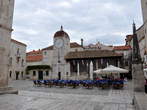



















 HR-CRO - Croatia
HR-CRO - Croatia